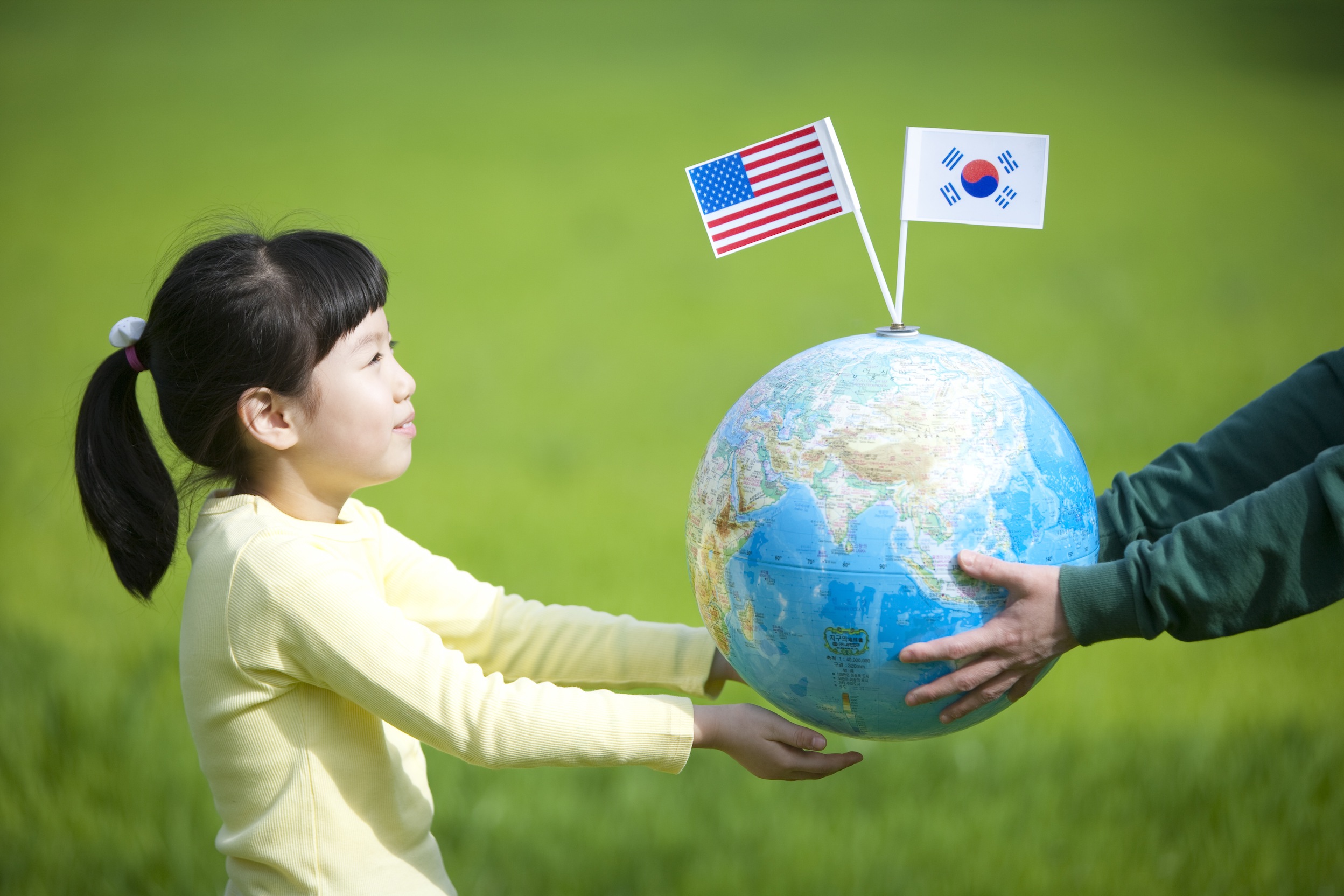![“Konglish” is a term that refers to the linguistic mixture of English and Korean. [Imagetoday]](http://www.jstudentboard.com/reporter/wp-content/uploads/2014/12/JSR_Dec13_Kong-300x200.jpg)
My solution has been a combined identity of considering myself to be Korean American. One of the bridges in my life that has linked these two contrasting cultures together is Konglish, a hybrid language of Korean and English. Through Konglish, I have able to communicate with my friends and family in a way that utilizes both my identities.
For example, “비디오,” pronounced bee-dee-oh, is Konglish for the English word “video.” Konglish borrows English concepts and words and interprets them into the Korean language, thereby blending the two cultures.
At the same time, Konglish has stunted my appreciation of the Korean language. Although Konglish has helped me relate to my Korean American friends, it has been harder to form a close relationship with my parents due to the language barrier.
Since I have a limited knowledge of Korean and my parents have a limited knowledge of English, Konglish has been an efficient way to communicate on a daily basis about simple topics. However, I cannot talk to them about detailed discussions or even articulate my thoughts during an argument. Also, because of my dependence on Konglish, I have been unmotivated to learn more of the Korean language.
Many Korean American teens face a similar problem. According to a survey of 25 Korean Americans conducted by JSR, 88% use Konglish to speak to their friends, and 72% use it to speak to their parents.
“Sometimes I try and speak Konglish with my parents, and they have no idea what I am talking about when I try and mix the words from each language,” said one anonymous user who took the survey.
“[It’s hard to understand] Korean jokes that are part of Korea’s culture,” added another anonymous user. “The humor of the American society differs greatly from the humor of Korean society so it’s hard to understand philosophical jokes [with my parents].”
Due to the language barrier as well as the generation gap, teenagers are unable to communicate with their parents through Konglish alone. Yet despite the unnecessary confusion in the conversation, most Korean Americans do not try to learn more of the Korean language.
“Instead of actually trying to speak the whole sentence in Korean, I just give up early and substitute a word I don’t know with English. Because of this, I never end up learning since that’s sufficient to communicate,” said a Korean American who took the survey.
Konglish is a creative way of combining two cultures into one that Korean Americans can relate to, and it has helped to connect Korean and American values. It allows teenagers to appreciate both cultures and to reach out to other Korean Americans with similar experiences.
However, Konglish is not enough to link the cultural differences between Korean Americans and their Korean parents. Meanings behind phrases and jokes are lost, and it is a poor substitute for the Korean language. Because of this, it is important that Korean Americans should try to embrace their Korean heritage in addition to appreciating their complex, hybrid culture.

